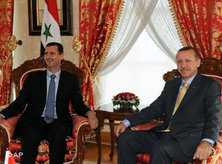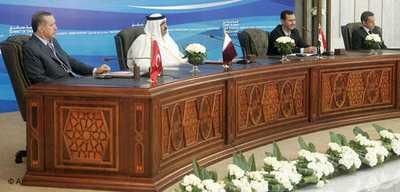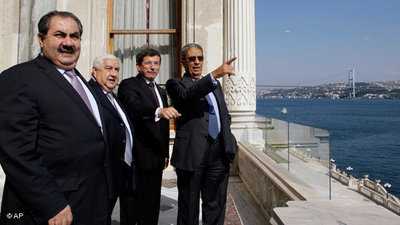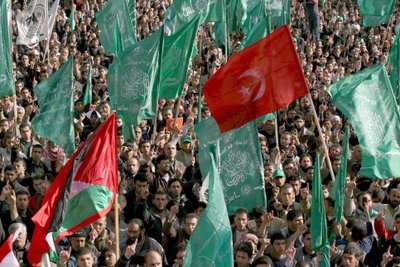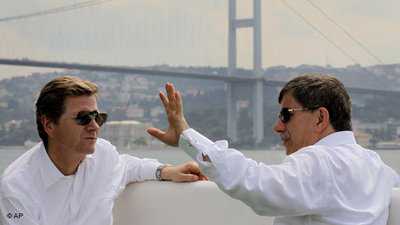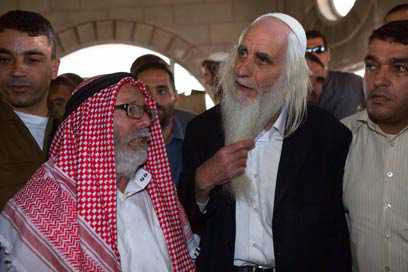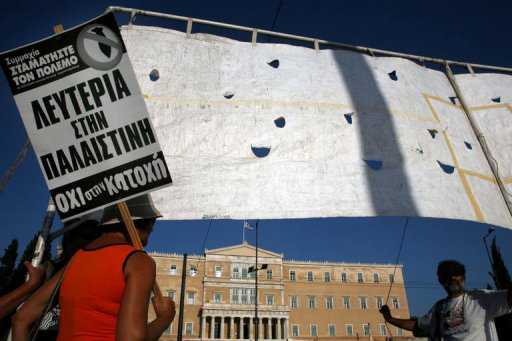(The following is a condensed report of an Israeli and Palestinian delegation I was part of two weeks ago in Istanbul)
“The word ‘peace’ has become hollow. It has lost its meaning,” said one of the participants. “That may feel like the case,” said another, “but we cannot let the voice of despair and violence re-appropriate our language for the world we hope to build.”
This excerpt came from a recent gathering of Israelis and Palestinian peace builders meeting in Istanbul, Turkey. The gathering was billed as a “Consultation” of bi-communal field experts. Over the course of three days, twenty participants acted as a think-tank to envision the seemingly impossible – the reemergence of a cross-border peace movement in Israel / Palestine.
The host organization was a Massachusetts based NGO called the Karuna Center for Peacebuilding (KCP), which specialize in bi-communal trainings for grassroots peace-building practitioners all over the globe. Istanbul was chosen as a compromise for an off-site location close enough but far enough away from the conflict zone. Ten Israelis and ten Palestinians, from places that included Jerusalem, Hebron, Bethlehem, Jaffa, each with advanced level peace-building resumes, were invited.
The founder of Karuna Center for Peacebuilding, Dr. Paula Green, organized this gathering with one goal in mind: to assess ‘what kind of bi-communal programming would be useful for this region.’ In other words, what kinds of trainings or actions could bring Israelis and Palestinians together in joint cooperation under today’s reality? What could be helpful now, when the prospects for meaningful resolutions are not promising and the political will of the leaders are not inspiring. But this was not a gathering of politicians. The twenty men and women, ranging from their late twenties to their early sixties, were assembled in an effort to help make sure that grassroots collaboration projects between Israelis and Palestinians do not become extinct.
As irrelevant as co-existence work may often seem to a cynical person, this was a battle tested group of peace workers. Extensive field experience united this particular group in Istanbul. They were not beginners. They didn’t need prior agreements or ground rules as is usually the case for this type of meeting between Israelis and Palestinians. Most, if not everyone assembled, had spent the better part of the past two decades invested in some type of bi-communal work. Friends Across Borders, Givat Haviva, Neve Shalom/Wahat AlSalam, Eden Association, Kids for Peace, Face to Face, and AlWATAN are just a sample of the organizations represented in the room.Everyone here shared the same strong belief: that that sustainable peace is much more likely if a certain segment of conflicting parties in the society have the courage to cross boundaries and forge a relationship with their adversaries.
With so much experience under one roof, facilitators Paula Green of KCP and Carol Kasbari from Jerusalem, asked the group to brainstorm ways to expand the shrinking field of peace workers inside the Holy Land. Our only assignment beforehand was to read several chapters from “Bridging the Divide: Peace-building in the Israeli-Palestinian Conflict, a study of lessons learned from co-existence activity edited by Edy Kaufman, Walid Salem, and Juliette Verhoeven. Invariably, we examined some of the key obstacles inhibiting our attempts at bi-communal work, many of which were easy to discuss, but difficult to imagine transcending.
The topic of the “1%” kept surfacing -the distressing statistic that less than 1% of Israelis and Palestinians ever meet face to face for the purpose of a cooperative activity. Perhaps it is not a surprising statistic. For both political and social reasons, most Israelis and Palestinians do not base their impression of the other through personal contact. There are many reasons for this.Palestinians, for example, face extraordinary pressure to refuse participation, specifically bi-communal activity with Israelis, as part of a national anti-normalization boycott. Several Palestinians invited to this consultation had to decline for fear of losing their jobs or being labeled as traitors or collaborators.
For Israelis, there is little incentive to participate in bi-communal work. For reasons including the construction of the wall/separation barrier, the diminished physical threat from Palestinians in recent years has sedated the Israeli public to the point that the conflict is no longer seen as an existential threat. Therefore, the desire to meet them or work in partnership has lost its sense of urgency and relevance, at least in the short term. The group all agreed, however, that this “bubble consciousness” simultaneously contributes to a growing sense of apathy and fear which, in turn, greatly reduces interest in bi-communal activities. Exploring long term mutually satisfactory arrangements to end the conflict is even less likely in this atmosphere of separation and non-cooperation.
The group also spent time examining what has worked in the peace-building field over the years including the specific characteristics of why certain groups have lasted. A powerful example of effective, inspiring and sustainable bi-communal activity mentioned repeatedly was the work ofBereaved Parents’ Circle, a joint support group of Palestinian and Israeli parents who have lost children from violence in the conflict. No matter what your politics are, given what these parents have endured, it is pretty hard imagining anyone convincing these people why they should hate each other.
But what makes a project like this effective and sustainable? One could say these parents are taking huge risks, but they are also meeting real human needs. Encouraging Israelis and Palestinians to cross boundaries, literally and figuratively, has to resonate on a deep enough level to motivate taking the risk – the type of risk that makes it so plainly obvious that we are all in this together. Is it precisely these types of encounters, which wake us up to our interdependence, that this consultation was geared to uncover.
One specific encounter that emerged during the sessions was the role of a new third party. Not a third party as a moderator, but one with high stakes in the conflict. A discussion was convened around the simple question: can joint German-Palestinian-Israeli dialogue make a difference to our future?” Although the format is unclear, what was clear is that Germany’s history is directly linked to the formation of Israeli society and has immense consequences on where Palestinian are today. This is well documented from the Israeli perspective, in Avrum Burg’s book, “The Holocaust is Over, We Must Rise From Its Ashes.” The question of the German voice in this conflict, however, peeked genuine curiosity. If organized and facilitated appropriately, perhaps the German narrative, in the context of the Israeli/Palestinian conflict, may enable parties to directly confront issues of shame and blame in an unprecedented manner. Who knows what would ultimately yield, but these were the kind of imaginative and risk-taking suggestions that emerged.
Other brainstorming sessions focused around different but interrelated topics, based on questions raised by the participants: Some of these included: What if we did all live in one state?What are the lessons to learn from the success of Hamas and the Settler movements? What is the role of Diaspora Jews and Palestinians in encouraging bi-communal work? How can we build a constructive struggle to end the occupation? What are the criteria for an effective peacebuilding program?
On some level, most of these conversations were not new. But on another level, few could say they had been able to talk about these subjects with peace building practitioners from both sides.The amount of expertise in the room was demonstrated less by what was actually spoken, but more by what was implicitly understood. The lack of defensiveness was noticeable, but even more striking was the sheer absence of blame. Resisting the urge to blame is a quality that cannot be understated in any context, but particularly in bi-communal work.
With help from the Karuna facilitators, the group was guided along a certain trajectory. By the final day the conversation had shifted to the practical. The challenge was clear. With support from Karuna, would members of this delegation be able to take ownership of a project to train more peace builders in this region? Could more people, on both sides, be mentored and supported to further this critical goal of meeting the other for the purposes of shared cooperation? Were there others out there even interested?
The answer was a unanimous, resounding, almost self-evident yes. But more questions remained. Could this kind of cross-border training be done given the political and social barriers?Not easily. Would there be money for it? It would have to be raised. Where would it happen? It would have to be researched. There were no simple answers and no template of success to work from. All Karuna could offer was its experience in other conflict regions and its limited resources to help push this into a reality. It was up to these twenty individuals to be the “people they were waiting for.”
That was the story of the Middle East Consultation in Istanbul. The entering question, “what kinds of programs would be useful in this region,” was actually the beginning of the answer. The kind of program constructed and run by people who’ve been working tirelessly for years to advance a cooperative interdependent bi-communal future – that is the kind of program needed.


